Ketamine, and other psychedelics
Newsletter # 108
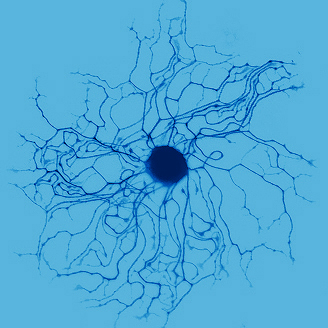
In vitro models
Despite the proven clinical efficacy of psilocybin, demonstrating its biological effects remains challenging, particularly at low doses. This issue is not unique to psilocybin; it similarly affects low-doses of ketamine, although an inhaled version called esketamine (Spravato), given through a nasal spray, was already approved in 2019 by the FDA.
-
A schematic illustration of neuronal neurite profile in the control vs Psilocin condition
-
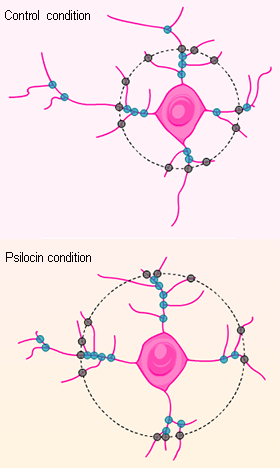
-
● The blue dot denotes the branchpoint and serves as an index for neurite ramifications.
◯ The black circle highlights the radius “ r ” (aka, neurite critical value). This represents the furthest intersection point where maximum branching occurs (● grey dots), thus providing a measure of the complexity of neurite arborization relative to the soma.
This value is important in understanding the structure and connectivity of neurons.
-
A schematic illustration of Summary of quantitative measures for 3 categories of neurite parameters across various psychedelics.
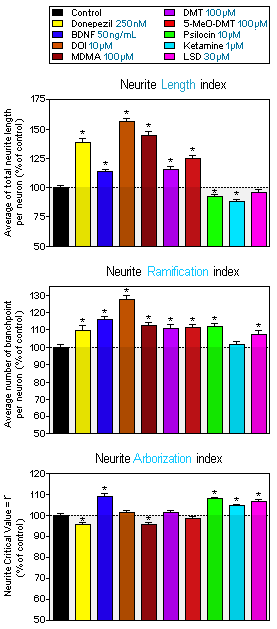
-
■ Donepezil
■ BDNF : Brain-Derived Neurotrophic Factor
■ DOI : 2,5-Dimethoxy-4-iodoamphetamine
■ MDMA : 3,4-Methylenedioxymethamphetamine
■ DMT : N,N-Dimethyltryptamine
■ 5-MeO-DMT : 5-methoxy-N,N-dimethyltryptamine
■ Psilocin
■ Ketamine
■ LSD : Lysergic acid diethylamide
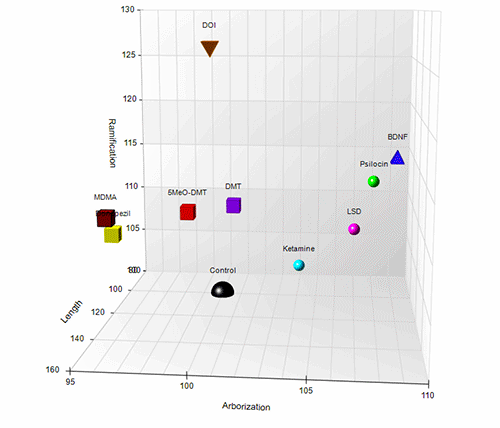
-
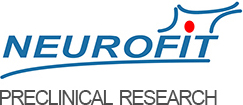
 PREVIOUS
PREVIOUS
